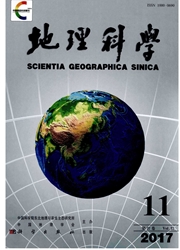

 中文摘要:
中文摘要:
以地方节庆作为一个可观测的指标,采用质性研究方法,在讨论妈祖文化旅游节表层景观变迁基础上,以权力中继机构——巽寮妈祖理事会的成立原因、过程及运作为主线,展演仪式组织阶段资本与地方间互动与协商,展现地方节庆变迁背后的权力机制。研究发现,资本与地方的博弈协商结果不局限于节庆重构本身,还催生新的权力主体。这个权力主体对资本既依附又抗争,对地方社区既强势又民主,特殊的成立动机、半官方的机构属性、复杂的内部关系使其成为节庆变迁中的中坚力量。这种基于资本与地方权力关系而产生,并同资本和地方一起推动节庆变迁的新型权力机构,补充了全球化背景下地方节庆变迁的微观层面权力机制研究。
 英文摘要:
英文摘要:
Essentially, the evolution of globalization is a process of the game between global forces, which is represented by capital, and local forces. Previous studies pay more attention to the dualistic power relationship in the Fourth World, thus ignoring the possibility of constructing a compatible mechanism of power negotiation between capital and place in developed areas. On the base of discussing the landscape changes of Matsu Cultural Tourism Festival, this article uses local festivals as a measurable indicator and takes the cause, process and operation of Xunliao Matsu Council, which is a power rely organization, as the main line to show the interaction and negotiation between capital and place during the ritual stages and display the power mechanism behind the local festival. It is argued that the council is the production of interaction and negotiation between capital and place, its establishment takes the festival into a new chapter. The paper shows the operation process of power relationships through the special performance of operation process hosted by council, further reveals the discourse power and strategies taken by different groups. Research finding shows that the outcome of game between capital and place is not limited to the reconstruction of the festival itself, but also gives birth to a new power subject. It is both dependent and resistant to the capital, also both strong and democratic to local communities. Its special motivation, semi-official attribution and complex internal relationship make it the backbones during the changes of festival. It is argued that the interaction and negotiation among capital consortium,which is from top to down, council, which is a regulated rely station, and local communities, which is from down to top, promotes local festival transform from production ceremony, which originally takes developing Matsu culture as the main function, to the attribution of a power practice, which highlights the commercial value of culture and takes local culture heritage into considerat
 同期刊论文项目
同期刊论文项目
 同项目期刊论文
同项目期刊论文
 期刊信息
期刊信息
